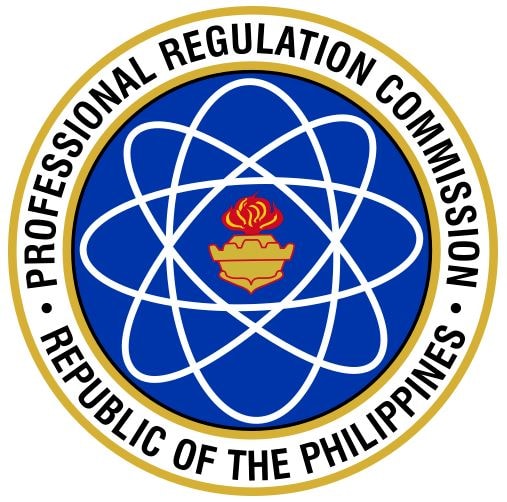With its complexities, the Philippine real estate market requires a solid grasp of its regulations. The Professional Regulation Commission (PRC) is central to this framework, significantly impacting all aspects of the industry. This article thoroughly examines the PRC’s role in the practice of real estate, emphasizing its diverse functions and vital importance for professionals and the public. Understanding the PRC’s responsibilities goes beyond mere compliance; it builds trust, ensures ethical conduct, and ultimately strengthens the reliability of the Philippine real estate market.

What is the Professional Regulation Commission (PRC)?
The PRC is a national government entity tasked with regulating and supervising various professions in the Philippines. It was created in 1973 through Presidential Decree No. 223, aimed at standardizing qualifications and upholding integrity across all licensed professions.
Essential Duties of the PRC
- Administers licensure exams
- Issues professional licenses
- Enforces a Code of Ethics
- Handles disciplinary actions
- Encourages lifelong learning through Continuing Professional Development (CPD) initiatives
The PRC oversees more than 40 professional groups—including teachers, engineers, accountants, and yes, real estate professionals.
Why is the PRC Important in the Philippine Real Estate Industry?
The Philippine real estate industry, marked by high-value transactions and significant personal impact, fundamentally requires a robust regulatory body like the PRC. Without its oversight, the sector, including real estate developers, would be highly vulnerable to fraud, unethical behavior, and a breakdown of accountability, severely damaging public trust. The PRC’s crucial role lies in mitigating these dangers by establishing professional competency through licensing and enforcing ethical standards. This vital function provides essential consumer protection and significantly bolsters the stability, credibility, and transparency, ultimately fostering the trust necessary for its prosperity in the real estate market.
Navigating the PRC as a Real Estate Stakeholder
For all stakeholders in the Philippine real estate industry, efficient engagement with the Professional Regulation Commission (PRC) is paramount. The PRC has established a comprehensive online infrastructure, centered around its official website (prc.gov.ph), to facilitate this interaction. This central resource provides access to a range of essential tools and information designed to promote transparency, ensure compliance, and uphold professionalism within the sector. Key functionalities of the PRC website include:
- License Verification: Easily confirm the credentials of real estate brokers, appraisers, and consultants.
- Directory Access: Locate and identify duly licensed professionals.
- Regulatory Updates: Stay informed about examination schedules, new regulations, and important announcements.
- Form Downloads: Access the necessary application forms and official documents.
- CPD Guidance: Understand Continuing Professional Development requirements and find accredited providers.
- Licensing and Ethics Information: Gain clarity on licensing procedures and the governing Code of Ethics.
- Complaint Procedures: Understand the process for filing grievances against erring professionals.
By proactively utilizing these readily available online resources and familiarizing themselves with the PRC’s established procedures, all stakeholders in the Philippine real estate industry can effectively ensure compliance, confidently verify professional credentials, and address any concerns that may arise. The PRC website thus serves as the fundamental point of reference for navigating the regulatory landscape.
Key Functions of the PRC Related to Real Estate
The PRC is the central authority for licensing and registering real estate service providers, including brokers, appraisers, consultants, and salespersons. Obtaining these licenses requires meeting educational standards, completing training, and, crucially, passing a rigorous examination administered by the PRC. Specifically, the Professional Regulatory Board of Real Estate Service (PRB-RES), established under the Real Estate Service Act (RA 9646), is the body within the PRC responsible for administering and conducting these vital licensure examinations for all real estate service practitioners.
Comprised of a chairperson and four members, the Board of Real Estate Service (PRB-RES) is appointed by the President of the Philippines from a list of qualified nominees. Operating under the supervision and administrative control of the PRC, the Professional Regulatory Board of Real Estate Service (PRB-RES) plays a pivotal role. The PRB-RES performs several essential functions, including:
- Licensing: Designing and conducting licensure examinations for real estate brokers and appraisers to ensure competency and professionalism.
- Accreditation: Accrediting real estate salespersons who fulfill the specified criteria, ensuring they meet industry standards.
- Enforcement: Implementing the Real Estate Service Act and upholding the Code of Ethics and Responsibilities to maintain ethical conduct within the industry.
- Policy-making: Formulating and executing policies and guidelines to steer the industry towards sustainable growth.
- Disciplinary Action: Investigating and imposing disciplinary measures on real estate service practitioners who breach legal or ethical standards.
Licensing and Registration of Real Estate Practitioners
A. Licensure Examinations
The Real Estate Professional Licensure Examination in the Philippines, overseen by the PRC, is an essential milestone for individuals aspiring to become real estate brokers, real property appraisers, or consultants. Typically conducted at least once a year, this examination is a prerequisite for obtaining a license, as mandated by the Real Estate Service Act (RA 9646). To qualify, candidates must hold a bachelor’s degree and pass the exam. The Licensure Examination and Registration Information System (LERIS) is an online platform that simplifies the application process for those aiming to become licensed real estate service providers. This system plays a pivotal role in the PRC’s mission to effectively regulate and oversee the real estate service practice.
The exam ensures that only qualified professionals can practice real estate services in the Philippines. Generally, candidates must be Filipino citizens, at least 18 years old (or 21 for some positions), and hold a bachelor’s degree from a recognized institution. The Real Estate Professional Licensure Examination covers various aspects of real estate, including fundamentals, special and technical knowledge, and professional practice.
Key Features of LERIS for Real Estate Professionals
LERIS serves as a centralized online portal that simplifies and expedites various stages of the licensure process. For aspiring real estate professionals, it offers the following key functions:
- Online Application for Examination: Instead of traditional manual submissions, applicants can create an account, fill out the necessary forms, upload required documents (such as transcripts, birth certificates, and NBI clearance), and select their preferred examination location and date (when available).
- Payment of Examination Fees: The system typically allows online payment of the required examination fees through various channels, providing a convenient and secure method for settling these dues.
- Monitoring Application Status: Applicants can track the progress of their application online, from initial submission to approval, eliminating the need for manual follow-ups.
- Viewing Examination Schedule and Room Assignments: LERIS provides access to the official schedules for the Real Estate Brokers Licensure Examination (REBLE) and other relevant examinations. Closer to the examination date, examinees can view their assigned testing centers and room numbers through the system.
- Accessing Examination Results: Once the PRC officially releases the examination results, examinees can conveniently access their scores and determine their passing status through their LERIS accounts.
- Initial Registration and Issuance of Professional Identification Card (PIC): Successful examinees often utilize LERIS to complete the initial registration process after passing the exam. This may involve uploading additional documents, paying registration fees, and scheduling an online appointment for their Professional Identification Card (PIC) issuance.
- Renewal of Professional Identification Card (PIC): Licensed real estate professionals can also use LERIS to renew their PICs. This process usually involves providing updated information, certifying compliance with Continuing Professional Development (CPD) requirements, and paying the necessary renewal fees online. Real estate practitioners must renew their professional licenses every three years, including fulfilling CPD requirements.
- Requesting Certifications and Other Services: LERIS also provides a streamlined process for requesting various certifications and additional services related to licensure and registration offered by the PRC. This makes it easier for licensed real estate professionals to access necessary documentation and support efficiently.
Examination Process:
- Registration: Candidates must first register with the PRC and pay the required fees.
- Application: Applications are typically submitted online, with specific deadlines for filing.
- Exam Schedule: The PRC provides advance notice of the examination dates, locations, and other pertinent details.
- Exam Format: The exam typically includes multiple-choice questions and written essays.
- Results: The results are usually released within a few working days after the last day of the exam.
Post-Licensure Examination:
Upon successfully passing the Real Estate Broker, Appraiser, or Consultant licensure examination administered by the Professional Regulation Commission (PRC), aspiring professionals must complete several crucial steps to become fully authorized to practice in the Philippines. A valid PRC license is the legal prerequisite for engaging in real estate brokerage, appraisal, consultancy, or handling real estate projects. The official PRC Identification Card (ID) serves as tangible proof that the licensee has met the stringent qualification standards and has committed to upholding the profession’s ethical principles. These licenses typically have a validity period of a few years and require periodic renewal, often contingent upon demonstrating compliance with Continuing Professional Development (CPD) requirements.
1. Oath-Taking Ceremony
New licensees are required to attend a formal oath-taking ceremony administered by the PRC. This event signifies their official entry into the real estate profession and their commitment to uphold the laws and ethical standards governing their practice.
2. Initial Registration with the PRC
Following the oath-taking, successful examinees must proceed with their initial registration with the PRC. This involves completing the necessary documentation, paying the required registration fees, and officially recording their licensure details in the PRC’s database.
The PRC will issue the Certificate of Registration and the Professional Identification Card (PIC) upon successful registration. The PIC serves as the primary identification document authorizing the licensee to practice their profession.
3. Continuing Professional Development (CPD)
Continuing Professional Development (CPD) is a mandatory requirement for all licensed real estate service practitioners to ensure the renewal of their PIC. This ongoing learning process is crucial for staying updated on industry trends, legal developments, and best practices.
Credit Unit Requirements:
- Licensed Real Estate Brokers are required under the Real Estate Service Act (RESA) to have completed at least a four-year college degree and must accumulate a significant number of CPD units (currently 120 CPD units, but it’s essential to verify the most current requirement with the PRC).
- Real Estate Consultants, Appraisers, and Assessors must also comply with CPD requirements for license renewal. Additionally, RESA mandates that these professionals have a minimum of five years of prior professional experience in their respective fields before they can become licensed.
- Real Estate Salespersons, while not required to take the licensure examination, must be accredited by the PRC and work under the direct supervision of a licensed Real Estate Broker. They are also mandated to acquire at least 10 creditable CPD units for their accreditation renewal.
Obtaining CPD Units:
The required CPD units can be earned by participating in various accredited CPD programs. These programs serve as a form of ongoing real estate service education, allowing practitioners to:
- Stay updated on the latest industry trends.
- Enhance their professional skills and knowledge.
- Maintain a high standard of professional service.
- Fulfill the regulatory requirements for license renewal.
B. Accreditation of Real Estate Service Providers in the Philippines
The accreditation of real estate service providers in the Philippines, notably brokers and salespersons, is chiefly managed by the PRC under the Real Estate Service Act (RESA) of 2009 (Republic Act No. 9646). A crucial element of this system is the accreditation of real estate service associations. The Philippine Real Estate Service Practitioners Inc. (PhilRES) was the first real estate service association recognized by the PRC as the Accredited and Integrated Professional Organization (AIPO) for the real estate service professions. Generally, accreditation requires meeting specific educational qualifications, showcasing good moral character, and completing designated training programs.
Key Aspects of Accreditation
- Primary Accreditation Body: The PRC is the government body responsible for accrediting real estate service practitioners.
- Accredited Integrated Professional Organization (AIPO): The PRC also accredits AIPOs, such as PhilRES, which play a vital role in providing professional support, fostering development, and upholding standards within the real estate sector.
- Accreditation Requirements for Real Estate Salespersons (RES): Individuals seeking accreditation as RES typically must:
- Be a Filipino citizen.
- Have completed at least two years (72 units) of college education.
- Possess good moral character.
- Supervision of Real Estate Salespersons: Accredited RES are mandated to operate under the direct supervision of a licensed Real Estate Broker (REB), who assumes responsibility for their professional actions.
- Mandatory Training and Seminars: Aspiring RES must complete the 12-hour Real Estate Brokerage Seminar by an accredited training institution.
- Required Documentation: The accreditation process necessitates the submission of specific documents, including:
- Birth Certificate (issued by the Philippine Statistics Authority – PSA)
- Marriage Certificate (if applicable, issued by PSA)
- Transcript of Records
- National Bureau of Investigation (NBI) Clearance
- Other certifications as required by the PRC
- Registration with DHSUD: In addition to being duly registered with the PRC, all licensed Real Estate Brokers and accredited Real Estate Salespersons must also register with the Department of Human Settlements and Urban Development (DHSUD).
C. Regulation and Supervision of Real Estate Practice
Beyond the crucial functions of licensing and accreditation, the PRC plays a vital and ongoing role in regulating and supervising real estate practices throughout the Philippines. This continuous oversight is essential for maintaining the industry’s integrity, protecting the public interest, and fostering a professional environment for all stakeholders. The PRC’s regulatory responsibilities encompass establishing and enforcing comprehensive rules and regulations that govern the multifaceted aspects of real estate activities.
Scope of PRC Regulation and Supervision:
The PRC’s regulatory authority encompasses several critical areas within real estate practice, including those managed by existing professional regulatory boards:
- Conduct of Real Estate Transactions: This involves establishing comprehensive guidelines and procedures for executing sales, leases, exchanges, and other real estate activities. These regulations outline the necessary documentation, provide a detailed step-by-step process, and specify the responsibilities of licensed professionals at each stage of a transaction.
- Professional Interaction with Clients: The PRC establishes guidelines for how real estate professionals should engage with their clients, focusing on effective communication, transparency, and the diligent representation of clients’ interests. This is crucial for providing professional advice, preventing misunderstandings, avoiding misrepresentations, and reducing potential conflicts, especially in real estate consulting.
- Standards of Advertising and Marketing: To ensure ethical and truthful promotion of properties and services, the PRC regulates real estate advertising and marketing practices. These regulations are designed to prevent misleading claims, false representations, and unfair competition within the industry.
- Disclosure Requirements: A key aspect of fair practice is the obligation for licensed professionals to disclose all relevant information about a property or a transaction to all parties involved. PRC regulations often specify what information must be disclosed, ensuring transparency and informed decision-making. For example, this might include material defects, property boundaries, or potential conflicts of interest.
- Handling of Client Funds: When real estate professionals handle client funds (e.g., earnest money, security deposits), the PRC sets strict guidelines for the proper management, accounting, and safeguarding of these funds. This is crucial for preventing misappropriation and ensuring the financial security of clients.
- Avoidance of Conflicts of Interest: The PRC’s regulations and ethical code emphasize the importance of avoiding conflicts of interest that could compromise the professional’s objectivity and duty to their clients. This includes restrictions on representing multiple parties with adverse interests in the same transaction without full disclosure and consent. By maintaining transparency and integrity, these regulations also help preserve real estate values, ensuring that all parties involved in a transaction are treated fairly and equitably.
- Record Keeping and Documentation: The PRC may also mandate specific requirements for record keeping and documentation related to real estate transactions, ensuring accountability and providing a clear audit trail.
The Crucial Role of the Code of Ethics
A central element of the PRC’s work in regulating and supervising the real estate practice is the Code of Ethics for professionals. This detailed set of rules, created and enforced by the PRC, acts as the basic standard for how everyone with a real estate license should behave. It emphasizes core values such as honesty and transparency, maintaining strong moral principles to foster trust, treating all parties fairly and without bias, and conducting oneself with professionalism, skill, care, and respect. By making sure these ethical rules, along with other regulations, are followed, the PRC works to create a real estate market that is fair and transparent. This helps to reduce disagreements, ensures people have the information they need to make good decisions, and protects the interests of buyers, sellers, and other parties. In short, the PRC’s ongoing regulation, with the Code of Ethics as a key part, is what makes the Philippine real estate market more stable, ethical, and reliable, which is good for both consumers and the industry.
D. Handling Complaints and Disciplinary Actions
Complaints against real estate professionals can be filed with various government agencies and organizations in the Philippines. The PRC handles complaints related to violations of the Real Estate Industry Law (RA 9646) and the regulations of the PRC. Other relevant bodies include the Department of Human Settlements and Urban Development (DHSUD), the Philippine National Police (PNP), or the National Bureau of Investigation (NBI) for potential criminal acts, and other local government units. Disciplinary actions can range from warnings to suspension or even a broker’s license revocation.
To protect the public and ensure that real estate professionals in the Philippines act ethically and legally, the PRC has a system for handling complaints against those who don’t. If you believe a licensed real estate agent has unfairly treated you unprofessionally or illegally, you can seek a resolution through the PRC. They take these issues seriously because they know it’s significant for you to trust the people you’re working with.
To file a complaint against a Philippine real estate professional with the PRC, you must submit a formal written complaint detailing the issue and providing evidence. The PRC will investigate if it has jurisdiction and grounds. The accused agent will be notified and given a chance to respond, and hearings may be held before a decision is made. Disciplinary actions can result from various offenses, including legal and ethical violations, dishonesty, negligence, criminal activity, aiding illegal practice, mishandling funds, undisclosed conflicts, or lack of required training. Penalties range from warnings and fines to license suspension or revocation, aiming to ensure accountability, deter misconduct, enforce standards, provide redress, and protect the public in the Philippine real estate industry. Under the RESA law, fines for violations can be up to Php100,000 or imprisonment for at least two years for licensed professionals.
Filing Complaints Against Real Estate Professionals: Know Where to Go
When you encounter issues with real estate professionals in the Philippines, knowing the right agency to contact is crucial for effective resolution. Here’s a breakdown of where to file your complaint based on the nature of the problem:
- PRC: For issues related to the conduct and ethics of licensed real estate brokers and salespersons (violations of RA 9646 or unprofessional behavior), file your complaint with the PRC. They issue warnings, suspend licenses, or even revoke licenses for unprofessional or unethical conduct by real estate brokers and salespersons.
- DHSUD: For issues concerning real estate developers, such as subdivisions and condominiums, including adherence to regulations and permits, reach out to the Department of Human Settlements and Urban Development (DHSUD). They are authorized to issue cease-and-desist orders and enforce other sanctions for violations related to development licenses or permits in real estate developments.
- PNP/NBI: If you suspect criminal activities such as fraud, estafa (swindling), or the illegal collection of funds, report the matter to the Philippine National Police (PNP) or the National Bureau of Investigation (NBI). You can also file criminal charges in court, leading to appropriate legal penalties if a crime is proven.
- Local Government Unit (LGU) or Barangay: For unauthorized or unregulated real estate activities happening within your local area, reach out to your Local Government Unit (LGU) or Barangay.
Additional Protection and Considerations:
Beyond these primary agencies, remember these important aspects:
- The Consumer Act of the Philippines (Republic Act No. 7394) protects you from deceptive, unfair, and unconscionable sales practices. You can file complaints about these issues with the appropriate consumer protection agencies.
- The Fair Trade Enforcement Bureau (DTI) is another avenue for complaints regarding consumer rights and unfair trade practices.
- While the Labor Code’s progressive discipline isn’t directly applicable here, the principle of due process, emphasizing fairness and reasonableness, is generally expected in any disciplinary proceedings.
To effectively address issues in the real estate industry, identify the specific nature of your complaint and direct it to the appropriate government agency. Each agency has its procedures and range of disciplinary actions aimed at ensuring accountability and protecting consumers.
Looking Ahead: The Evolving Role of the PRC in Philippine Real Estate
The Professional Regulation Commission (PRC) is poised to sustain its crucial influence within the Philippine real estate sector, emphasizing professional standards and consumer protection. This includes ongoing efforts in licensing and accreditation, strict enforcement of the Real Estate Service Act and the Code of Ethics, ensuring compliance for every real estate development project, proactive adaptation to technological advancements, and evolving market trends. The PRC’s initiatives play a vital role in the country’s social, political, and economic development and progress by promoting the real estate market, stimulating economic activity, and enhancing government income in real property-based transactions. Collaboration with industry stakeholders and a strong focus on safeguarding consumer interests will remain central to the PRC’s mandate.
Key Areas of Future PRC Regulation:
- Refined Licensing and Accreditation: The PRC will likely continue and refine the Real Estate Brokers Licensure Examination (REBLE) and the accreditation process for real estate salespersons to ensure a consistently competent and qualified pool of professionals entering the industry.
- Robust Enforcement and Ethical Oversight: Expect the PRC to maintain a strong stance on enforcing RA 9646 and the Code of Ethics, actively investigating complaints and implementing disciplinary measures in collaboration with other relevant bodies.
- Adaptation to Technological and Market Shifts: The PRC will need to evolve its regulations, potentially updating the Code of Ethics, to address the ethical and practical implications of online real estate platforms and other emerging technologies influencing how services are delivered.
- Strategic Industry Collaboration: Continued partnership with professional organizations like the National Real Estate Association, Inc. (NREA) will be essential for the PRC to stay updated on industry developments, ensuring proper and effective regulation that promotes ethical conduct and protects consumers.
- Prioritized Consumer Safeguards: Consumer protection will remain a core focus, with the PRC likely working with other agencies to enhance measures that provide reliable information and protect the public from unethical practices.
The future of the PRC’s regulation of Philippine real estate will be marked by a steadfast commitment to maintaining professionalism, embracing technological and modern developments, promoting collaboration, and most importantly, protecting the public’s interests in a rapidly evolving market.
In conclusion, the Professional Regulation Commission (PRC) is the cornerstone of a professional, ethical, and reliable real estate industry. Its comprehensive functions, from licensing and regulation to supervision and disciplinary measures, are vital for building trust and ensuring a stable market for all stakeholders. Aspiring professionals rely on the PRC’s standards for entry and growth, while buyers and sellers gain crucial protection. Developers and investors benefit from the stability and credibility the PRC fosters. By acknowledging and respecting the PRC’s role and by actively engaging with licensed professionals and staying informed, everyone contributes to a more ethical, transparent, and prosperous Philippine real estate sector.

























